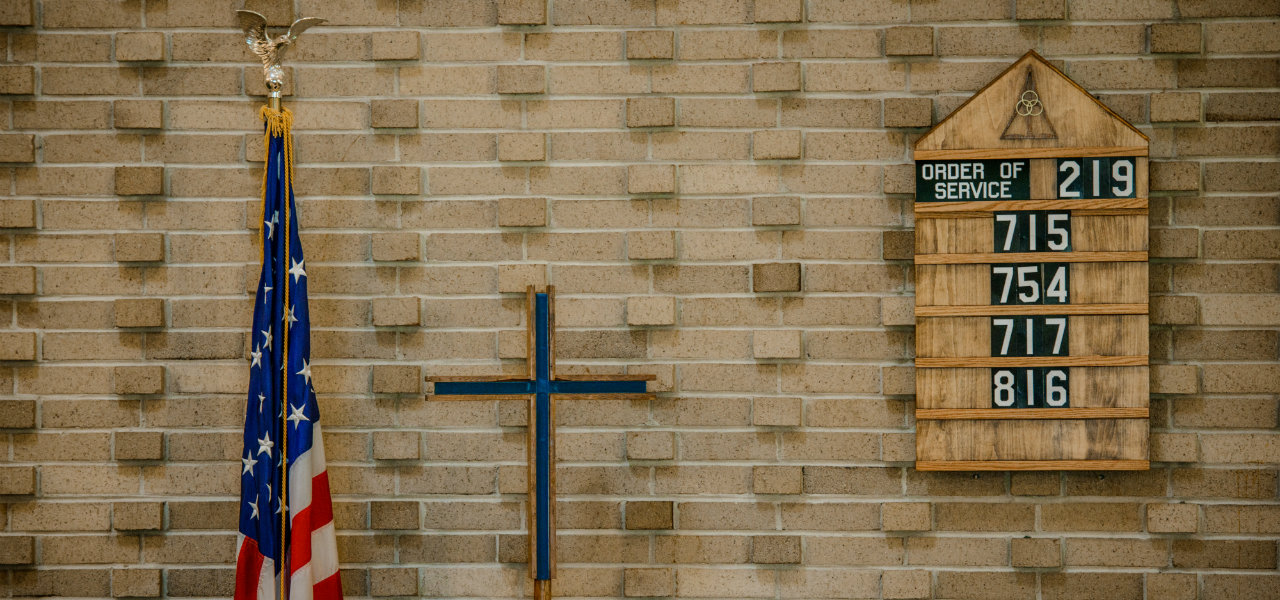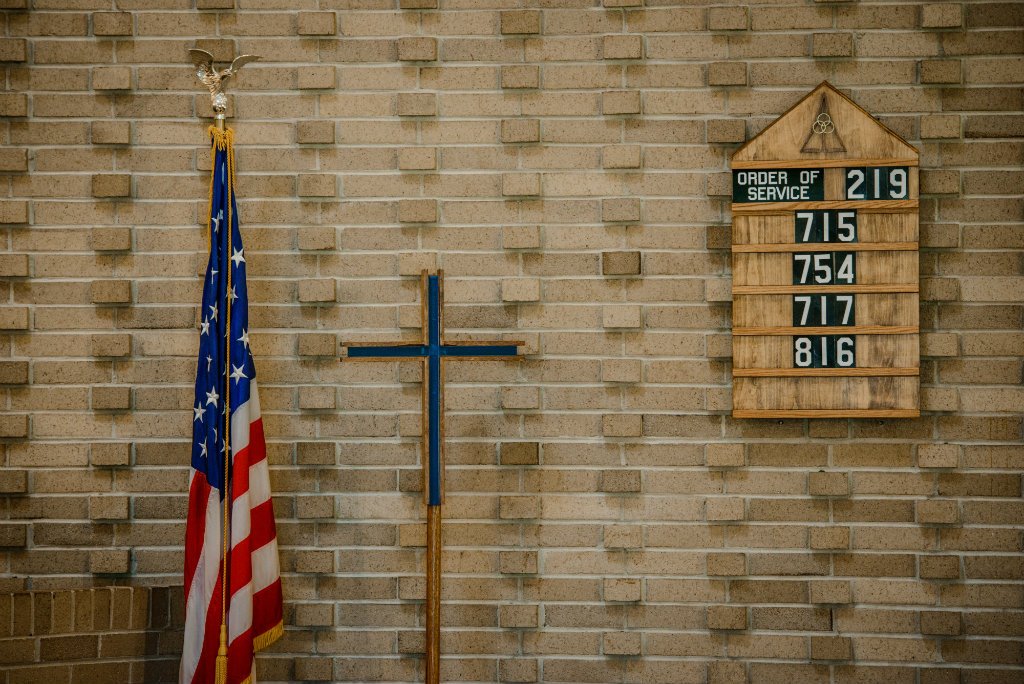
by David H. Petersen
Thanksgiving worship services, held at the request of the government, seem strange in modern America. Some American Lutherans have wondered if this is appropriate. Our government allows the murder of babies. How can its leaders ask us to pray and give thanks? Others have questioned whether or not the annual request itself is a violation of the separation of Church and State, and still others have suggested that it might be a misunderstanding of the two kingdoms.
It is none of these things. The Thanksgiving presidential proclamation is not a misunderstanding of the two kingdoms. The secular realm is answerable to God and beholden to Him whether they know it or not. It doesn’t violate the Constitution’s establishment clause, either. That clause never imagined that the government would ever be unaware of religion or cease to benefit from it. Nor is it even strange from a historic perspective or from a Biblical perspective. Governments throughout history have recognized that their citizens owed them things and that part of that obligation was to seek divine favor on their behalf.
A request for prayers would not have seemed strange to most any country in the history of the world until about 40 years ago. That is because until recent times, human beings made very little effort to suppress their natural, inborn knowledge, which told them that there is a god (at least one) and that we are all, in some way, beholden to him (or them). Only the fool says in his heart that there is no god (Ps. 14:1). That foolishness requires effort.
Thus it wasn’t strange when George Washington asked his fellow countrymen to thank whatever god they could come up with for the blessings of our country. It wasn’t really odd either when that was echoed, year after year, by the following presidents, or when Congress set an official date for it.
It wasn’t strange in the Bible, either, though not everyone was happy about it, when the pagan king Cyrus ordered that God’s people be allowed to rebuild the Temple in Jerusalem so that they would “offer pleasing sacrifices to the God of heaven and pray for the life of the king and his sons” (Ezra 6:10, ESV). In response to this, in Jerusalem and in America, God’s people did just that. They prayed for the life of a pagan king and his sons or for the lives of presidents and legislators they didn’t always like.
President Trump’s request might feel strange now, but that is only because the modern world has become strangely allergic to religion. We, however, are not. Nor is prayer a burden for us. When someone asks us to pray for him or her, even if that person is a pagan or a hypocrite or has hurt us, we are happy to do it. Thus writes St. Paul:
First of all, then, I urge that supplications, prayers, intercessions, and thanksgivings be made for all people, for kings and all who are in high positions, that we may lead a peaceful and quiet life, godly and dignified in every way. This is good, and it is pleasing in the sight of God our Savior, who desires all people to be saved and to come to the knowledge of the truth (1 Timothy 2:1–4).
Holding a public worship service in response to the president’s request that we thank our God for the blessings He has given the United States isn’t the only way to honor that request, but it is certainly a good way. In fairness, it is probably the most natural way for Lutherans to respond. We gather together not only to talk to God and list our blessings, but also to listen. We gather to hear His Word and receive His gifts. On Thanksgiving, we come also to be reminded of our duties to our government and of how it is that God provides for us through the State. In that context — the context of Law and Gospel, instruction and encouragement from the Word, and of His presence and forgiveness in the Sacrament — we offer Him thanks and praise even as we make our many requests, trusting that He will hear and answer our prayers for the sake of Christ.
All this is to say that if your Church doesn’t have a Thanksgiving service on the eve or the day, maybe you should suggest that they do. And if your church already has a service: go. If none of that is possible, when someone asks you to pray for him, do it — even if you didn’t vote for him and plan on voting against him at the first opportunity. In this I am simply urging that supplications, prayers, intercessions, and thanksgivings be made for all people, for kings and all who are in high positions, even if the hope is that they are soon unseated.
The Rev. David H. Petersen is the pastor of Redeemer Lutheran Church in Ft. Wayne, Ind.






I don’t remember seeing in the proclamation that “the people thank whatever god they could come up with “
The proclamation referred to the Almighty God a number of times.
You sound very anti-Trump. It would have been better to be more generic and leave politics out. The world fills us with politics. But your comments were very correct.
Thanks for reading and commenting.
Most Christians find it fairly easy and natural to pray for and accept guidance from leaders that you like and respect. The point of the article is that we should pray for and accept guidance also from leaders that we don’t like and respect. This isn’t in any way tied to the particulars of President Trump or his administration. Presumably, at some point in your life, if not already, if these United States endure and you remain in this body, you will find yourself with a president that you didn’t vote for and which you do not prefer. The article was intended to emphasize that if that should happen, you should not allow it to stop you from praying for the president or honoring his request for thanksgiving.
The US military chapels pray for our president regardless of who is in office because it’s the Biblical thing to do.
Excellent brother!
Thank you for this message. I did worship tonight and appreciate the freedom to do so and offered thanks to God for His countless blessings.